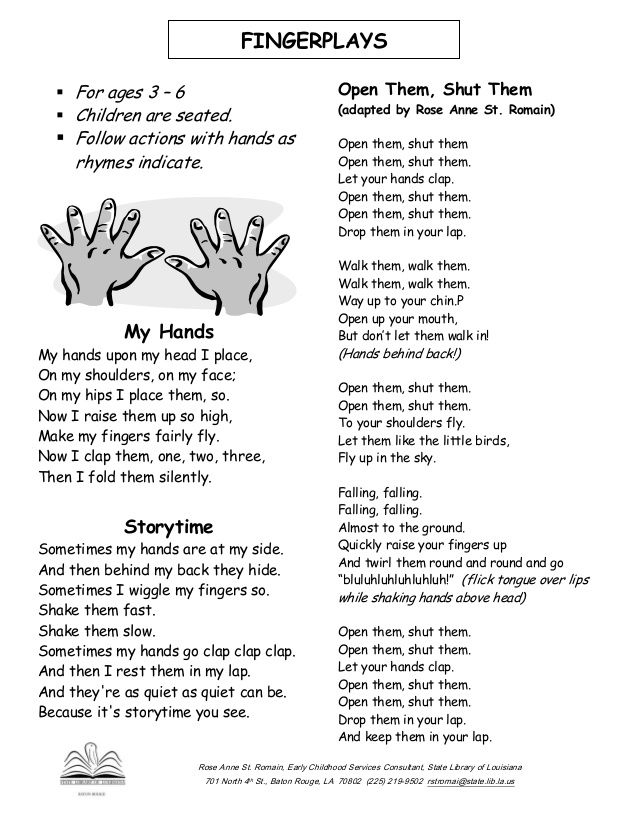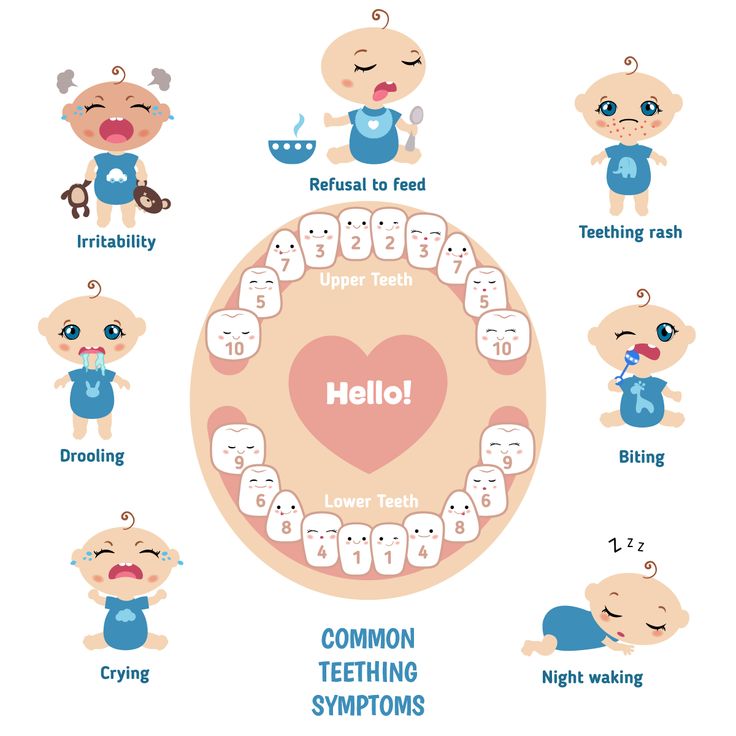How to raise a child that is not yours
Raising a child that is not yours
RAISING A CHILD THAT IS NOT YOURS
Fatherhood is hard. Raising a child that’s not yours (step, adopted, foster, grandchild) can be even harder. It can feel like you get all the responsibility with none of the authority. Even worse, sometimes it feels like you have to keep giving (love, time, respect, money) when you get nothing in return. It may feel that way but it can change and will change if you adjust your thinking and follow these strategies.
Strategic Steps1) Model what you seek |
Model what you seek
It always starts here with any relationship. You have to display the behavior you seek in others. This does not mean being submissive whilst being abused but it means seeking understanding, being compassionate, respectful and controlled. Consciously and unconsciously you are being watched by this child. Be consistent in displaying empathy AND trying to understand where they are coming from. Try and laugh, play and share time together whenever possible.
Know your role
Problems arise when we are unclear of what is expected of us. Have a clear conversation with your partner about your responsibilities and the expectations that go with it. Once this is agreed have a discussion with the children about everyone’s role. Address the elephant in the room highlighting that change is challenging and it won’t always be easy. Also, explain that you are not a replacement for their parent but someone who cares for them and will play a role in their life.
Play your role
Having established the boundaries and expectations of your role you need to live it. Keep checking in with your partner or trusted other to see that you are on track or whether adjustments need to be made. Children can be painfully honest. If you are receiving feedback from them, ask further questions to understand exactly what they mean (eg. “What makes you say that?”). Look beyond the (possibly derogatory) language to identify more clearly the needs that are being expressed. Fundamental needs include the need for physical survival, security, a sense of belonging, to be loved or valued, to have control over one’s life. If they have experienced big changes then they will be fearful. Your role is to understand their real needs (not respond to their behavior) and change their thinking through consistent non-threatening reassurance.
Keep checking in with your partner or trusted other to see that you are on track or whether adjustments need to be made. Children can be painfully honest. If you are receiving feedback from them, ask further questions to understand exactly what they mean (eg. “What makes you say that?”). Look beyond the (possibly derogatory) language to identify more clearly the needs that are being expressed. Fundamental needs include the need for physical survival, security, a sense of belonging, to be loved or valued, to have control over one’s life. If they have experienced big changes then they will be fearful. Your role is to understand their real needs (not respond to their behavior) and change their thinking through consistent non-threatening reassurance.
Don’t get distracted
Make sure the boundaries are clear for them and clear for you. Clear boundaries provide security and structure. Children are hard-wired to test boundaries. They also have a lot of energy so locking horns can be very tiring and it’s likely they’ll win, robbing you of valuable energy you could be expending more positively. Avoid petty power struggles and highlight that they have choices and their choices will influence their consequences. Boundaries are not designed for the sake of punishing but for the sake of flourishing. Remind them and yourself of this daily.
Avoid petty power struggles and highlight that they have choices and their choices will influence their consequences. Boundaries are not designed for the sake of punishing but for the sake of flourishing. Remind them and yourself of this daily.
Building Connection
Developing a relationship with a child that is not yours follows the same steps as if it was. They may have a little more residual fear based on the unique circumstances surrounding how you entered their life, so it's likely to require more effort.
“You’re not my Dad! I don’t have to listen to what you say!”
You will hear this at some stage and it will hurt. You will be tempted to respond with something unhelpful but resist. When a child says “You’re not my dad,” they are attempting to take power from you. Focus on your role as caretaker. That means you should remind them of the boundaries and rules of the house. Avoid a power struggle, don’t get drawn into the fight.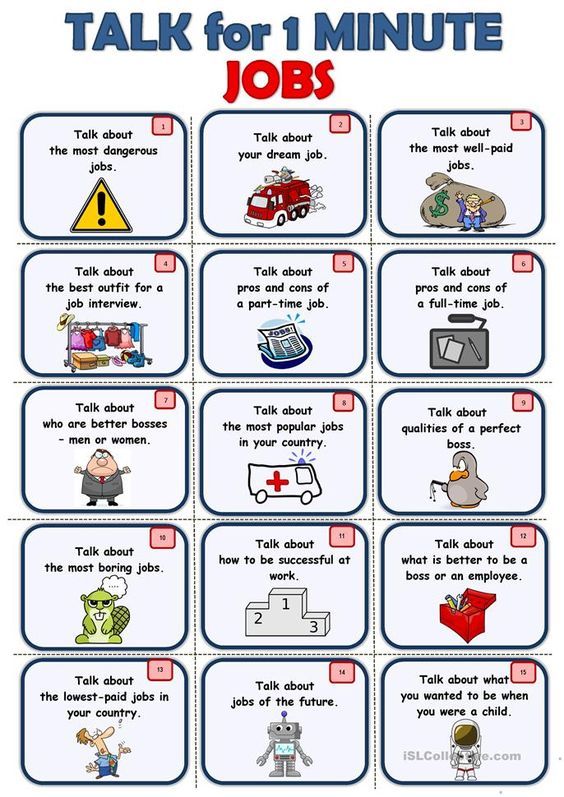 Calmly state what your role is and what the rules are. It’s very important that you verbalize no judgments about their biological parents or them. Judgments will only lead to more anger and resentment, which will lead to more power struggles. Our anger management strategies are also helpful.
Calmly state what your role is and what the rules are. It’s very important that you verbalize no judgments about their biological parents or them. Judgments will only lead to more anger and resentment, which will lead to more power struggles. Our anger management strategies are also helpful.
Useful linksStep-parenting & Blended Families |
Guide to Modern Parenting - Well Guides
By Perri Klass, M.D. and Lisa Damour
Illustrations by Julia Rothman
We all want to be the best parents we can be for our children, but there is often conflicting advice on how to raise a kid who is confident, kind and successful. And every aspect of being a parent has been more complicated and more fraught during the pandemic, with parents managing complex new assignments and anxious new decisions, all while handling the regular questions that come up in daily life with the children we love.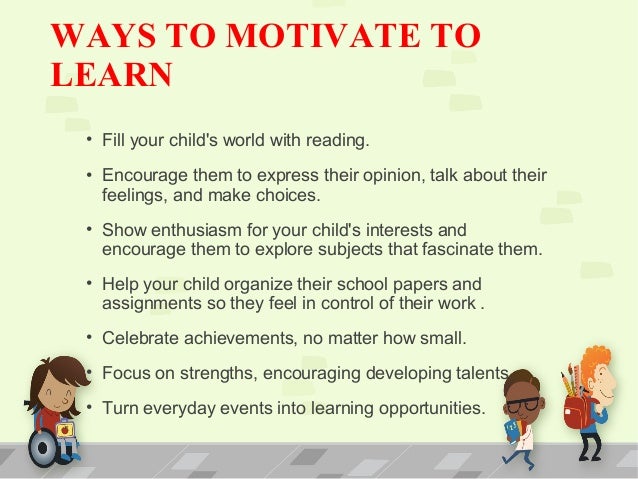 Throughout the circus act of parenting, it’s important to focus on balancing priorities, juggling responsibilities and quickly flipping between the needs of your children, other family members and yourself. Modern parents have the entire internet at their disposal and don’t follow any single authority. It’s hard to know whom or what to trust. Here, we’ll talk about how to help your child grow up to be a person you really like without losing yourself in the process.
Throughout the circus act of parenting, it’s important to focus on balancing priorities, juggling responsibilities and quickly flipping between the needs of your children, other family members and yourself. Modern parents have the entire internet at their disposal and don’t follow any single authority. It’s hard to know whom or what to trust. Here, we’ll talk about how to help your child grow up to be a person you really like without losing yourself in the process.
Your Parenting Style
Good news: There is no one right way to raise a child.
Research tells us that to raise a self-reliant child with high self-esteem, it is more effective to be authoritative than authoritarian. You want your child to listen, respect and trust you rather than fear you. You want to be supportive, but not a hovering, helicopter parent.
All of these things are easy to set as goals, but hard to achieve. How do you find the right balance?
As your child develops, the challenges will change, and your thinking may evolve, but your approach should be consistent, firm and loving.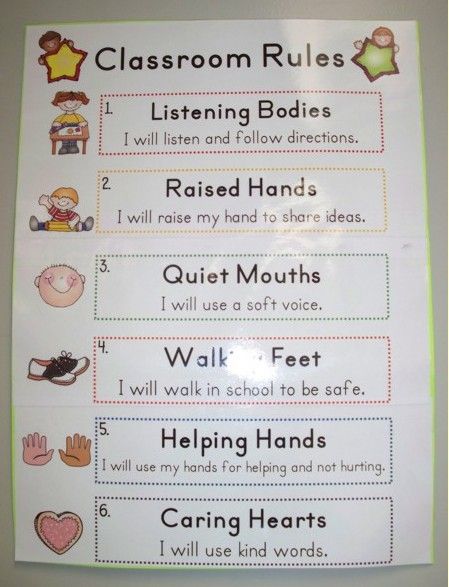 Help your child learn through experience that making an effort builds confidence and helps you learn to tackle challenges. Calibrate your expectations about what your child is capable of doing independently, whether you have an infant learning to sleep through the night, a toddler helping to put toys away, or an older child resolving conflicts.
Help your child learn through experience that making an effort builds confidence and helps you learn to tackle challenges. Calibrate your expectations about what your child is capable of doing independently, whether you have an infant learning to sleep through the night, a toddler helping to put toys away, or an older child resolving conflicts.
Remember, there is no one right way to raise a child. Do your best, trust yourself and enjoy the company of the small person in your life.
More on Parenting Styles
Conquering the Basics
Your healthy attitude toward sleep, food and discipline will affect your children in the most important ways.
How to Put a Baby to Sleep
Right from the beginning, babies vary tremendously in their sleep patterns. And parents, too, vary in terms of how they cope with interrupted nights.
There are two general schools of thought around babies and sleep after those early months when they need nighttime feedings — soothe the baby to sleep or don’t — and many parents find themselves wavering back and forth. Those who believe in sleep training, including many sleep experts, would argue that in helping babies learn to fall asleep by themselves and soothe themselves back to sleep when they wake during the night, parents are helping them master vital skills for comfort and independence.
Those who believe in sleep training, including many sleep experts, would argue that in helping babies learn to fall asleep by themselves and soothe themselves back to sleep when they wake during the night, parents are helping them master vital skills for comfort and independence.
Two techniques for this are:
- Graduated extinction, in which babies are allowed to cry for short, prescribed intervals over the course of several nights.
- Bedtime fading, in which parents delay bedtime in 15-minute increments so the child becomes more and more tired.
And many parents report that these strategies improve their children’s sleep patterns, as well as their own. But there are also parents who find the idea of letting a baby cry at night unduly harsh.
Whatever you try, remember, some babies, no matter what you do, are not reliably good sleepers. Parents need to be aware of what sleep deprivation may be doing to them, to their level of functioning, and to their relationships, and take their own sleep needs seriously as well. So, ask for help when you need it, from your pediatrician or a trusted friend or family member.
So, ask for help when you need it, from your pediatrician or a trusted friend or family member.
Bedtime
For older children, the rules around sleep are clearer: Turn off devices, read aloud at bedtime, and build rituals that help small children wind down and fall asleep. Establishing regular bedtime routines and consistent sleep patterns will be even more important as children grow older and are expected to be awake and alert during school hours; getting enough sleep on a regular basis and coming to school well-rested will help grade-school children’s academic performance and their social behavior as well. Keeping screens out of the bedroom (and turned off during the hours before bed) becomes more and more important as children grow — and it’s not a bad habit for adults, either. Even when education went remote during the pandemic, keeping children’s sleep schedules regular helped them stay on course.
As your child hits adolescence, her body clock will shift so that she is “programmed” to stay up later and sleep later, often just as schools are demanding early starts. Again, good family “sleep hygiene,” especially around screens at bedtime, in the bedroom, and even in the bed, can help teenagers disconnect and get the sleep they need. By taking sleep seriously, as a vital component of health and happiness, parents are sending an important message to children at every age.
Again, good family “sleep hygiene,” especially around screens at bedtime, in the bedroom, and even in the bed, can help teenagers disconnect and get the sleep they need. By taking sleep seriously, as a vital component of health and happiness, parents are sending an important message to children at every age.
More About Sleep and Your Child
How to Feed Your Child
There’s nothing more basic to parenting than the act of feeding your child. But even while breast-feeding, there are decisions to be made. (Yes, breast-feeding mothers should eat spicy food if they like it. No, they shouldn’t respond to all infant distress by nursing.) Pediatricians currently recommend exclusive breast-feeding for the first six months, and then continuing to breast-feed as you introduce a range of solid foods. Breast-feeding mothers deserve support and consideration in society in general and in the workplace in particular, and they don’t always get it. And conversely, mothers are sometimes made to feel inadequate if breast-feeding is difficult, or if they can’t live up to those recommendations.
And conversely, mothers are sometimes made to feel inadequate if breast-feeding is difficult, or if they can’t live up to those recommendations.
You have to do what works for you and your family, and if exclusive breast-feeding doesn’t, any amount that you can do is good for your baby. As children grow, the choices and decisions multiply; that first year of eating solid foods, from 6 to 18 months, can actually be a great time to give children a range of foods to taste and try, and by offering repeated tastes, you may find that children expand their ranges.
Small children vary tremendously in how they eat; some are voracious and omnivorous, and others are highly picky and can be very difficult to feed. Let her feed herself as soon as and as much as possible; by “playing” with her food she’ll learn about texture, taste and independence. Build in the social aspects of eating from the beginning, so that children grow up thinking of food in the context of family time, and watching other family members eat a variety of healthy foods, while talking and spending time together.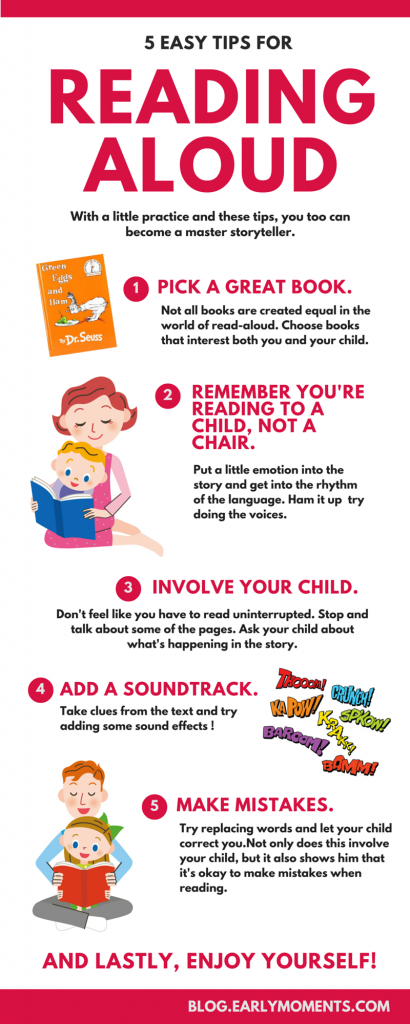 (Children should not be eating while looking at screens.) Parents worry about picky eaters, and of course about children who eat too much and gain weight too fast; you want to help your child eat a variety of real foods, rather than processed snacks, to eat at mealtimes and snacktimes, rather than constant "grazing," or "sipping," and to eat to satisfy hunger, rather than experiencing food as either a reward or a punishment.
(Children should not be eating while looking at screens.) Parents worry about picky eaters, and of course about children who eat too much and gain weight too fast; you want to help your child eat a variety of real foods, rather than processed snacks, to eat at mealtimes and snacktimes, rather than constant "grazing," or "sipping," and to eat to satisfy hunger, rather than experiencing food as either a reward or a punishment.
Don’t cook special meals for a picky child, but don’t make a regular battlefield out of mealtime.
Some tips to try:
- Talk with small children about "eating the rainbow," and getting lots of different colors onto their plates (orange squash, red peppers, yellow corn, green anything, and so on).
- Take them to the grocery store or the farmer's market and let them pick out something new they'd like to try.
- Let them help prepare food.
- Be open to deploying the foods they enjoy in new ways (peanut butter on almost anything, tomato sauce on spinach).
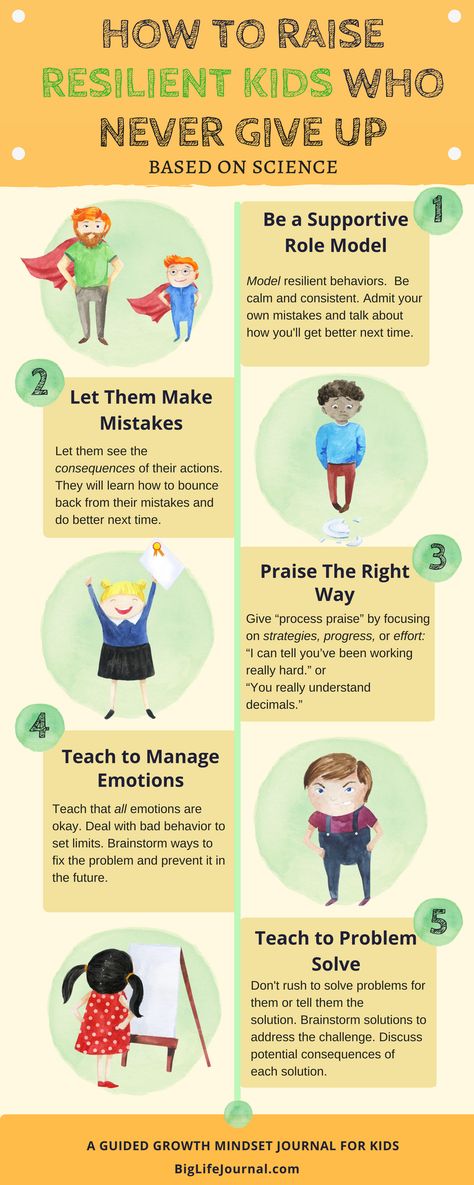
- Some children will eat almost anything if it's in a dumpling, or on top of pasta.
- Offer tastes of what everyone else is eating.
- Find some reliable fallback alternatives when your child won’t eat anything that’s offered. (Many restaurants will prepare something simple off the menu for a child, such as plain pasta or rice.)
Above all, encourage your child to keep tasting; don't rule anything out after just a couple of tries. And if you do have a child who loves one particular green vegetable, it's fine to have that one turn up over and over again.
Bottom line: As long as a child is growing, don’t agonize too much.
Family meals matter to older children as well, even as they experience the biological shifts of adolescent growth. Keep that social context for food as much as you can, even through the scheduling complexities of middle school and high school. Keep the family table a no-screen zone, and keep on talking and eating together.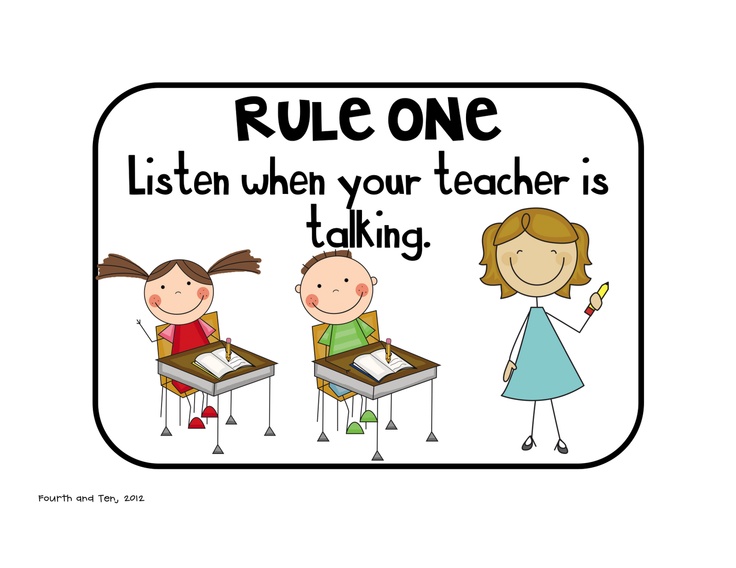 Some families found that the pandemic meant more opportunities for family meals, which helped them through the hard times, but if the stresses of the recent past have pushed your family toward more snacking and more fast food, know that you are not alone. It will always help to re-set as a family, to stock healthy foods in the house, and to eat together and connect over food.
Some families found that the pandemic meant more opportunities for family meals, which helped them through the hard times, but if the stresses of the recent past have pushed your family toward more snacking and more fast food, know that you are not alone. It will always help to re-set as a family, to stock healthy foods in the house, and to eat together and connect over food.
More on Your Child's Diet
How to Discipline
Small children are essentially uncivilized, and part of the job of parenting inevitably involves a certain amount of correctional work. With toddlers, you need to be patient and consistent, which is another way of saying you will need to express and enforce the same rules over and over and over again. “Time outs” work very effectively with some children, and parents should watch for those moments when they (the parents) may need them as well. Seriously, take a breather when you are feeling as out of control as your child is acting.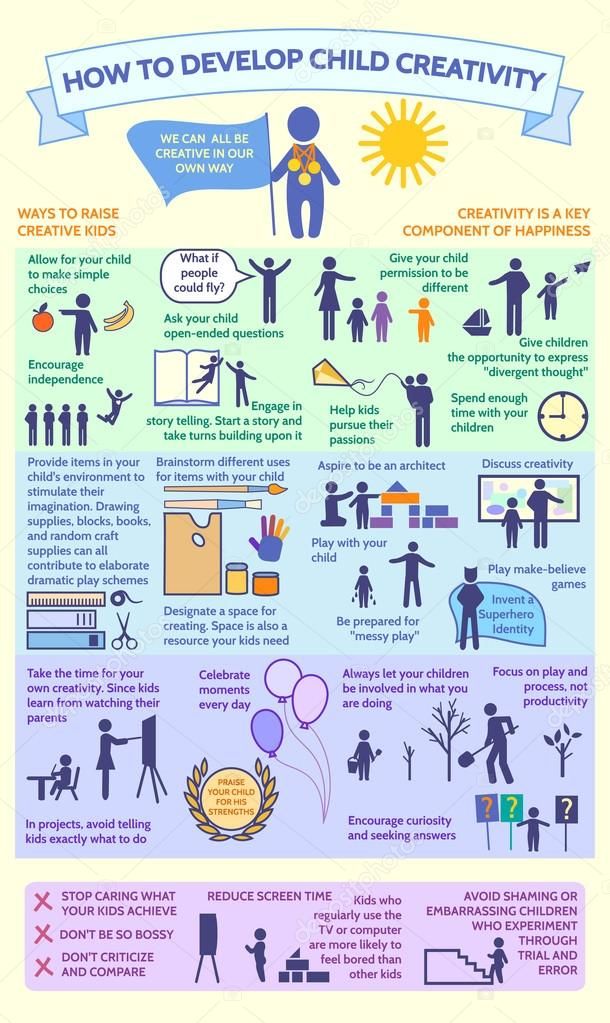 Many parents have been under extraordinary stress during the pandemic; be sure you are taking care of yourself, and get help if you need it.
Many parents have been under extraordinary stress during the pandemic; be sure you are taking care of yourself, and get help if you need it.
Distraction is another good technique; you don’t have to win a moral victory every time a small child misbehaves if you can redirect the behavior and avoid the battle. The overall disciplinary message to young children is the message that you don’t like the behavior, but you do love the child.
Think praise rather than punishment. Physical discipline, like hitting and spanking, tends to produce aggressive behavior in children. Keep in mind that it’s always a parental win if you can structure a situation so that a child is earning privileges (screentime, for example) by good behavior, rather than losing them as a penalty. Search for positive behaviors to praise and reward, and young children will want to repeat the experience. But inevitably, parenthood involves a certain number of “bad cop” moments, when you have to say no or stop and your child will be angry at you — and that’s fine, it goes with the territory. Look in the mirror and practice saying what parents have always said: “I’m your mother/father, I’m not your friend.”
Look in the mirror and practice saying what parents have always said: “I’m your mother/father, I’m not your friend.”
As parents, we should be trying to regulate our children’s behavior — or to help them regulate their own — and not trying to legislate their thoughts:
- It is OK to dislike your brother or your classmate, but not to hit him.
- It is OK to feel angry or frustrated, as long as you behave properly.
Our “civilizing” job as parents may be easier, in fact, if we acknowledge the strength of those difficult emotions, and celebrate the child who achieves control. And take advantage of the opportunity to demonstrate what you do when you have lost control or behaved badly: Offer a sincere parental apology.
It’s also worth recognizing that we have all been living through extraordinary times, and that a child who is, for example, angry or frustrated because activities have been canceled, or interrupted, should not feel bad about expressing those emotions.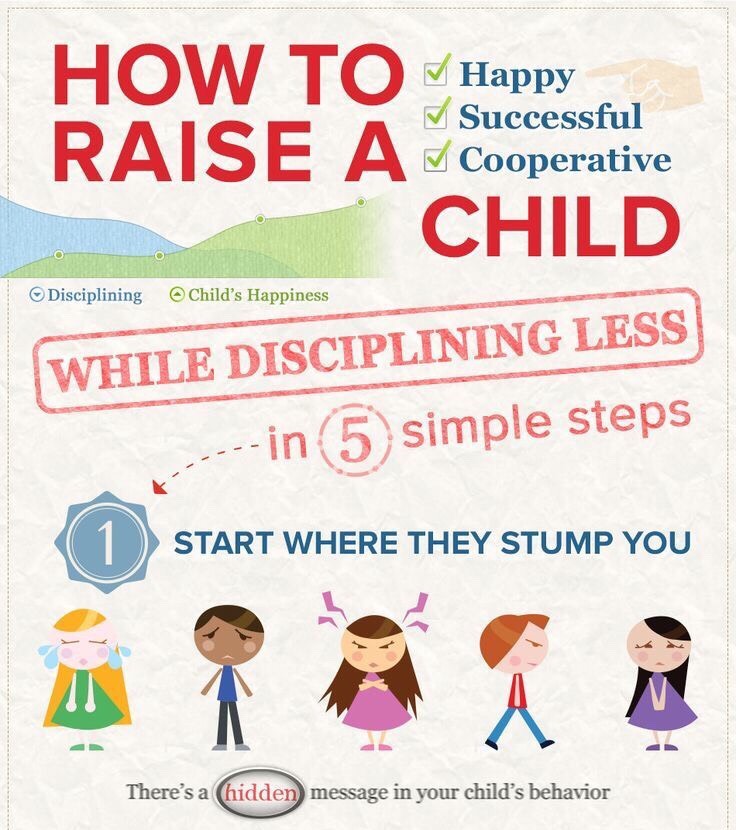 Even young children can understand that what’s “wrong” or “bad” is the pandemic – not the child’s feelings.
Even young children can understand that what’s “wrong” or “bad” is the pandemic – not the child’s feelings.
More on Discipline
Social Issues
Parenting in the Time of Covid
This is an anxious time to be a parent. You’re helping children navigate a pandemic world in which new information – sometimes scary, sometimes confusing – has to be absorbed and reacted to on a regular basis. You may be helping an anxious child handle fears about going out into the world, or trying to enforce safety protocols with a child who is just eager to declare the pandemic “over.” You may be dealing with economic pressures, with worries over vulnerable family members, or with grief for people who have been lost. And many of the everyday decisions of parenthood have become more heavily weighted and more frightening. It can’t be said too often: understand that you are living – and parenting – through very difficult times, and as far as possible, take care of yourself.
If you are anxious, if you are depressed, if you are angry, think about the coping strategies that help you, and look for additional help if you need it, from your partner, if you have one, from close friends and family, from your spiritual community, from your doctor, from a mental health professional.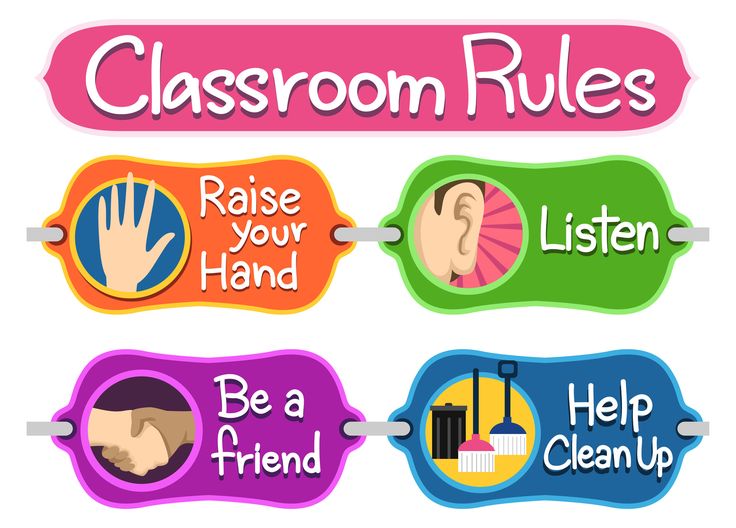 Understand that parents have faced a difficult – and at times impossible – set of “assignments,” and that they have in large part responded with everyday heroism in taking care of their children. But they need to care of themselves as well.
Understand that parents have faced a difficult – and at times impossible – set of “assignments,” and that they have in large part responded with everyday heroism in taking care of their children. But they need to care of themselves as well.
Bullying
You can take steps to help your children manage both bullying and conflict — and you're at your most useful when you know which of the two you’re trying to address. Children who are being bullied are on the receiving end of mistreatment, and are helpless to defend themselves, whereas children in conflict are having a hard time getting along. Fortunately, most of the friction that happens among children is in the realm of conflict —an inevitable, if unpleasant, consequence of being with others — not bullying.
If children are being bullied, it’s important to reassure them that they deserve support, and that they should alert an adult to what’s happening. Further, you can remind your children that they cannot passively stand by if another child is being bullied. Regardless of how your own child might feel about the one being targeted, you can set the expectation that he or she will do at least one of three things: confront the bully, keep company with the victim, alert an adult.
Regardless of how your own child might feel about the one being targeted, you can set the expectation that he or she will do at least one of three things: confront the bully, keep company with the victim, alert an adult.
When the issue is conflict, you should aim to help young people handle it well by learning to stand up for themselves without stepping on anyone else. To do this, you can model assertion, not aggression, in the inevitable disagreements that arise in family life, and coach your children to do the same as they learn how to address garden-variety disputes with their peers.
More About Gender
Morality
All parents have in common the wish to raise children who are good people. You surely care about how your child will treat others, and how he or she will act in the world. In some households, regular participation in a religious institution sets aside time for the family to reflect on its values and lets parents convey to their children that those beliefs are held by members of a broad community that extends beyond their home.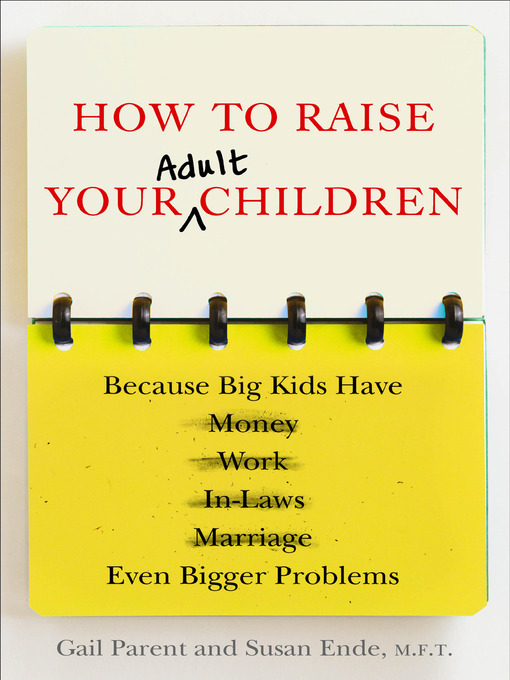
Even in the absence of strong spiritual beliefs, the celebration of religious holidays can act as a key thread in the fabric of family life. Though it is universally true that children benefit when their parents provide both structure and warmth, even the most diligent parents can struggle to achieve both of these on a regular basis. The rituals and traditions that are part of many religious traditions can bring families together in reliable and memorable ways. Of course, there are everyday opportunities to instill your values in your child outside of organized religion, including helping an elderly neighbor or taking your children with you to volunteer for causes that are important to you.
Above all, however, children learn your values by watching how you live.
More on Morality and Children
Academic Pressure
When it comes to school, parents walk a difficult line: You want your children to strive and succeed, but you don’t want to push them in ways that are unfair, or cause needless stress. At every age and skill level, children benefit when parents help them focus on improving their abilities, rather than on proving them. In other words, children should understand that their intellectual endowment only gets them started, and that their capabilities can be increased with effort.
At every age and skill level, children benefit when parents help them focus on improving their abilities, rather than on proving them. In other words, children should understand that their intellectual endowment only gets them started, and that their capabilities can be increased with effort.
Many children struggled during the course of the pandemic, faced with learning in ways that were harder for them than regular school – this may be especially true for children with learning differences and special needs, but it applies across the board. As they return to in-person schooling, children need time to catch up, and they need to feel comfortable asking for that time, or for extra help – so they need to hear the message that what matters is the learning and understanding that they gain, not some rigid schedule that they may have fallen behind.
Children who adopt this growth mindset – the psychological terminology for the belief that industry is the path to mastery – are less stressed than peers who believe their capacities are fixed, and outperform them academically. Students with a growth mindset welcome feedback, are motivated by difficult work, and are inspired by the achievements of their talented classmates.
Students with a growth mindset welcome feedback, are motivated by difficult work, and are inspired by the achievements of their talented classmates.
To raise growth-mindset thinkers you can make a point of celebrating effort, not smarts, as children navigate school. (This may be more important than ever as schools reopen and children return following their different experiences with remote or hybrid education.) When they succeed, say, “Your hard work and persistence really paid off. Well done!” And when they struggle, say, “That test grade reflects what you knew about the material being tested on the day you took the test. It does not tell us how far you can go in that subject. Stick with it and keep asking questions. It will come.”
Parents should step in when students face academic challenges that cause constant or undue stress. Some students hold themselves, or are held by adults, to unrealistic standards. Others missed a step along the way, had a hard time during the pandemic, study ineffectively or are grappling with an undiagnosed learning difference. Parents should be in touch with teachers about how things are going. Determining the nature of the problem will point the way to the most helpful solution.
Parents should be in touch with teachers about how things are going. Determining the nature of the problem will point the way to the most helpful solution.
More on Children and School Pressure
Technology
Here’s how to raise a child with a healthy attitude toward shiny screens and flashing buttons.
Screen Time
You could try to raise a screen-free child, but let’s be honest, you’re reading this on a screen. As in everything else, the challenge is in balancing the ideal and the real in a way that’s right for your family. The pandemic upended many families’ rules and practices, as everything from visits with grandma from teenage social networks to math class started to happen on screens. And some aspects of those experiences may help you think about positive screen-related experiences you want to build into your children’s lives going forward: regular dates for watching a movie as a family, reading a book on an iPad, FaceTiming with out-of-town relatives.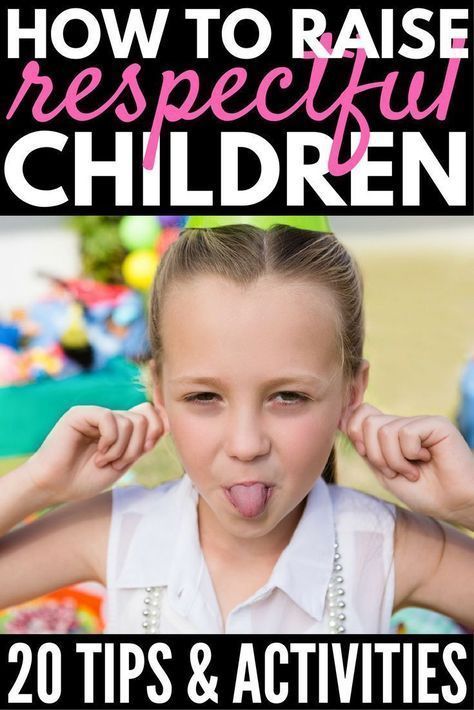 Technology plays such an important role in children’s lives now that when we talk about it, we’re talking about everything from sleep to study to social life.
Technology plays such an important role in children’s lives now that when we talk about it, we’re talking about everything from sleep to study to social life.
“Technology is just a tool and it can be an extremely enriching part of kids’ lives,” said Scott Steinberg, co-author of “The Modern Parent’s Guide to Facebook and Social Networks.” “A lot of what we’re teaching about parenting around technology is just basic parenting,” he said. “It comes down to the Golden Rule: Are they treating others in a respectful and empathetic manner?”
Phones and social media give older kids opportunities to reckon with responsibilities they haven’t had before, such as being sent, or asked to share, an inappropriate image, said Ana Homayoun, author of the book “Social Media Wellness: Helping Teens and Tweens Thrive in an Unbalanced Digital World.” Parents need to keep talking about this side of life with their children so they don’t leave their kids to navigate it alone.
And then there’s the question of protecting family time. Mr. Steinberg advises setting household rules that govern when devices may be used, and have clear, age-appropriate policies so kids know what they can and can’t do.
Mr. Steinberg advises setting household rules that govern when devices may be used, and have clear, age-appropriate policies so kids know what they can and can’t do.
Some of these policies will be appropriate for all ages, including parents, such as:
- No phones at the dinner table.
- No screens for an hour before bedtime.
It’s important to practice what you preach. And if your family needs to re-set some of these rules as children return to the classroom, you can talk it through with your children, explaining why it matters to use devices well, but set some limits. And in addition to taking time for family meals and family conversations, parents should be taking the time to sit down with young children and look at what they’re doing online, rather than leaving them alone with their devices as babysitters.
Parents as Digital Role Models
When a parent wants to post on social media about something a child did that may embarrass the child, Ms. Homayoun said, it’s worth stepping back to consider why. Are you posting it to draw attention to yourself?
Homayoun said, it’s worth stepping back to consider why. Are you posting it to draw attention to yourself?
You should respect your child’s privacy as much as you respect the privacy of friends, family members and colleagues. As cute as it may seem to post pictures of a naked toddler, consider a "no butts" policy. That may not be the image that your child wants to portray 15 years from now.
“We need to, from a very early age, teach kids what consent looks like,” Ms. Homayoun said. “It doesn’t begin when a kid is 15, 16 or 17. It begins when a kid is 3 and he doesn’t want to go hug his uncle.” Or when he doesn’t want you to post that video of him crying over a lost toy.
Our children will create digital footprints as they grow, and it will be one of our jobs to help them, guide them and get them to think about how something might look a few years down the line — you can start by respecting their privacy and applying the same standards throughout their lives.
Tech Toys
It’s easy to dismiss high-tech toys as just pricey bells and whistles, but if you choose more enriching options, you can find toys that help kids grow. For young children, though, there’s a great deal to be said for allowing them, as much as possible, to explore the nondigital versions of blocks, puzzles, fingerpaints and all the rest of the toys that offer tactile and fine motor experiences. As children get older, some high-tech games encourage thinking dynamically, problem solving and creative expression.
For young children, though, there’s a great deal to be said for allowing them, as much as possible, to explore the nondigital versions of blocks, puzzles, fingerpaints and all the rest of the toys that offer tactile and fine motor experiences. As children get older, some high-tech games encourage thinking dynamically, problem solving and creative expression.
“These high-tech games can be an opportunity to bond with your kids. Learn more about how they think and their interests,” Mr. Steinberg said. Some games encourage kids to be part of a team, or lead one. And others let them be wilder than they might be in real life – in ways that parents can appreciate: “You can’t always throw globs of paint around the house but you can in the digital world,” he said.
The Right Age for a Phone?
“Many experts would say it’s about 13, but the more practical answer is when they need one: when they’re outside your direct supervision,” Mr. Steinberg said. Ms. Homayoun recommends them for specific contexts, such as for a child who may be traveling between two houses and navigating late sports practices.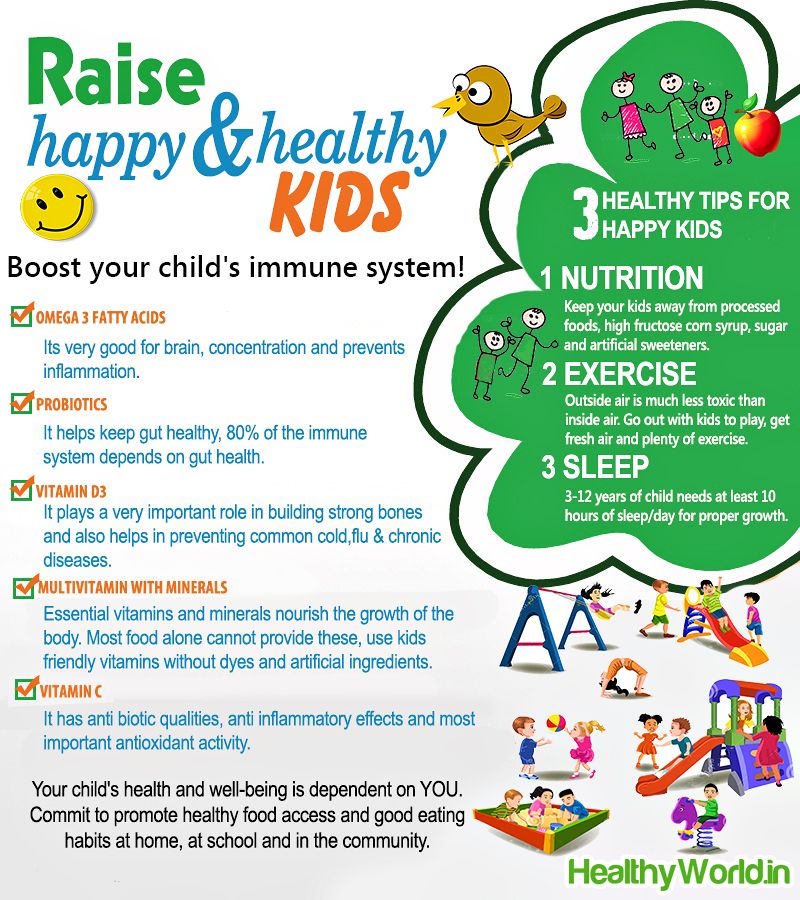
Consider giving tiered access to technology, such as starting with a flip phone, and remind children that privileges and responsibilities go hand in hand. A child’s expanding access to personal technology should depend on its appropriate use.
To put these ideas into practical form, the website of the American Academy of Pediatrics offers guidelines for creating a personalized family media use plan.
More on Technology and Kids
Time Management
Balance both your schedule and your child’s with a reasonable approach to time.
Overscheduling
As the world opens up, children whose lives had been more circumscribed will have the chance not only to return to school, but also to get back to sports, lessons and extracurricular activities. At the same time, pandemic protocols can make all of this even more complicated, for kids and for parents. We all know the cliché of the overscheduled child, rushing from athletic activity to music lessons to tutoring, and there will probably be moments when you will feel like that parent, with a carload of equipment and a schedule so complicated that you wake up in the middle of the night worrying you’re going to lose track. But it’s also a joy and a pleasure to watch children discover the activities they really enjoy, and it’s one of the privileges of parenthood to cheer your children on as their skills improve.
But it’s also a joy and a pleasure to watch children discover the activities they really enjoy, and it’s one of the privileges of parenthood to cheer your children on as their skills improve.
Some children really do thrive on what would be, for others, extreme overscheduling. But the complexities of managing social contacts in a time of Covid protocols make it even more important to set priorities so that a child gets to do whichever activities really matter to that particular kid. Know your child, talk to your child, and when necessary, help your child negotiate the decisions that make it possible to keep doing the things that mean the most, even if that means letting go of some other activities.
Remember, children can get a tremendous amount of pleasure, and also great value, from learning music, from playing sports, and also from participating in the array of extracurricular activities that many schools offer. However, they also need a certain amount of unscheduled time. The exact mix varies from child to child, and even from year to year. On the one hand, we need to help our children understand the importance of keeping the commitments they make — you don’t get to give up playing your instrument because you’re struggling to learn a hard piece; you don’t quit the team because you’re not one of the starters — and on the other, we need to help them decide when it’s time to change direction or just plain let something go.
The exact mix varies from child to child, and even from year to year. On the one hand, we need to help our children understand the importance of keeping the commitments they make — you don’t get to give up playing your instrument because you’re struggling to learn a hard piece; you don’t quit the team because you’re not one of the starters — and on the other, we need to help them decide when it’s time to change direction or just plain let something go.
So how do you know how much is too much? Rethink the schedule if:
- Your child isn’t getting enough sleep.
- Your child doesn’t have enough time to get schoolwork done.
- Your child can’t squeeze in silly time with friends, or even a little downtime to kick around with family.
And make sure that high school students get a positive message about choosing the activities that they love, rather than an anxiety-producing message about choosing some perfect mix to impress college admissions officers. The point of scheduling is to help us fit in the things we need to do and also the things we love to do; overscheduling means that we’re not in shape to do either.
The point of scheduling is to help us fit in the things we need to do and also the things we love to do; overscheduling means that we’re not in shape to do either.
Taking Care of Yourself
Being a parent is the job of your life, the job of your heart, and the job that transforms you forever. But as we do it, we need to keep hold of the passions and pastimes that make us who we are, and which helped bring us to the place in our lives where we were ready to have children. We owe our children attention — and nowadays it’s probably worth reminding ourselves that paying real attention to our children means limiting our own screentime and making sure that we’re talking and reading aloud and playing. But we owe ourselves attention as well, and this has been an extraordinarily stressful and anxious time for many parents.
Your children will absolutely remember the time that you spent with them, and that has special meaning for many families after the ways the lockdowns and isolation months of the recent past — but you also want them to grow up noticing the way you maintain friendships of your own, the way you put time and energy into the things that matter most to you, from your work to your physical well-being to the special interests and passions that make you the person they know.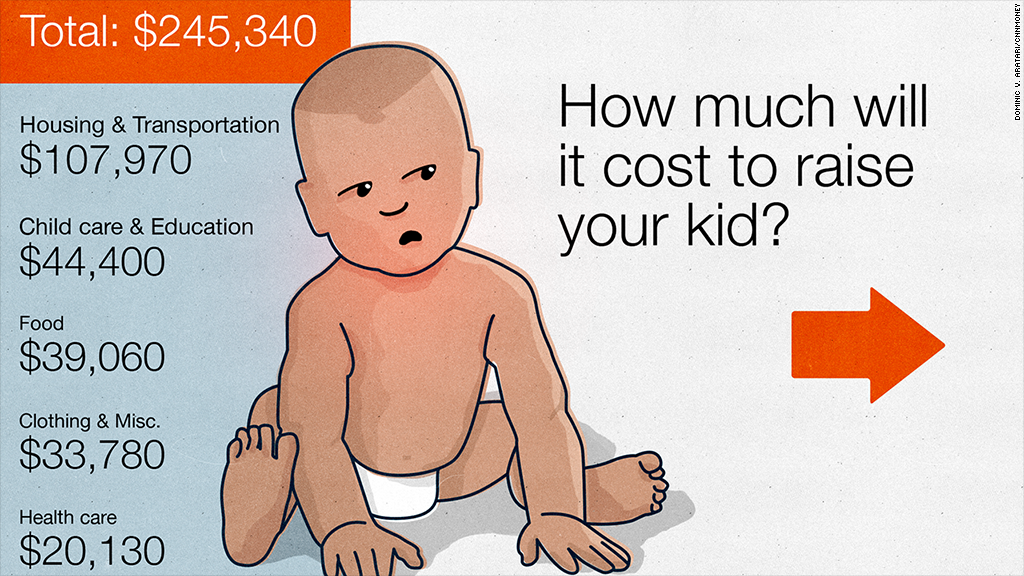 They will see how you hold on to what matters most, and how you make sure to do it safely – the same imperatives you’re trying to get them to incorporate in their own lives. Whether you’re taking time to paint or dance, or to knit with friends, or to try to save the world, you are acting and living your values and your loves, and those are messages that you owe to your children.
They will see how you hold on to what matters most, and how you make sure to do it safely – the same imperatives you’re trying to get them to incorporate in their own lives. Whether you’re taking time to paint or dance, or to knit with friends, or to try to save the world, you are acting and living your values and your loves, and those are messages that you owe to your children.
You may not be able to pursue any of your passions in quite the same way and to quite the same extent that you might have before you had a child — and before every social interaction carried a Covid question. You may have to negotiate the time, hour by hour, acknowledging what is most important, and trading it, perhaps, for what is most important to your partner, if you have one. You’ll be, by definition, a different painter, as you would be a different runner, a different dancer, a different friend and a different world-saver. But you may well come to realize that the experience of taking care of a small child helps you concentrate in a stronger, almost fiercer way, when you get that precious hour to yourself.
How to Find Balance
As children return to in-person learning, the distinction between schoolwork and homework will become an issue for some. Lots of parents worry that their children get an unreasonable amount of homework, and that homework can start unreasonably young. While it may be easy to advise that homework can help a child learn time management and study habits, and to let children try themselves and sometimes fail, the reality is that many of us find ourselves supervising at least a little, and parents who have been supervising remote learning may find it harder to pull back and let the child work. This is another reason to be in touch with your child’s teacher, and aware of how things are going in school. You should speak up if it seems that one particular teacher isn’t following the school’s guidelines for appropriate amounts of homework. And for many children, it’s helpful to talk through the stages of big projects and important assignments, so they can get some intermediate dates on the calendar. If the homework struggle dominates your home life, it may be a sign of another issue, like a learning disability.
If the homework struggle dominates your home life, it may be a sign of another issue, like a learning disability.
For many families nowadays, the single biggest negotiation about time management is around screen time, and of course, screen time has now become part of schoolwork for many children. Screen time can be homework time (but is the chatting that goes on in a corner really part of the assignment?) or social time or pure entertainment time. Bottom line: As long as a child is doing decently in school, you probably shouldn’t worry too much about whether, by your standards, the homework looks like it is being done with too many distractions.
And remember, some family responsibilities can help anchor a child to the nonvirtual world: a dog to be walked or trash to be taken out. And when it comes to fun, let your child see that you value the non-homework part of the evening, or the weekend, that you understand that time with friends is important, and that you want to be kept up to date on what’s going on, and to talk about your own life. Ultimately, we have to practice what we preach, from putting down our own work to enjoy unstructured family time to putting down our phones at the dinner table to engage in a family discussion. Our children are listening to what we say, and watching what we do.
Ultimately, we have to practice what we preach, from putting down our own work to enjoy unstructured family time to putting down our phones at the dinner table to engage in a family discussion. Our children are listening to what we say, and watching what we do.
Stepfathers and stepmothers: how to bring up "foreign" children?
12,793
To parents
Friends and foes
“All the difficulties of upbringing stem from the fact that parents, not only not correcting their shortcomings, but even justifying them in themselves, want not to see these shortcomings in their children,” wrote Lev Tolstoy. Raising blood children often involves many difficulties and hard work on oneself, and when children from different parents grow up in a family, the difficulties become even greater.
How to create a harmonious relationship between stepbrothers and sisters? How can adults improve relationships with non-native children and what mistakes should be avoided?
“Rejection of “alien” children primarily comes from jealousy: one of the spouses is jealous of a partner for his child, says Anna Avdeeva, a psychologist and specialist in parent-child relations.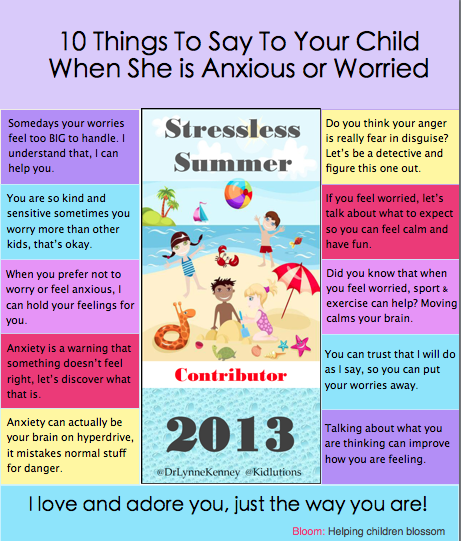 The reason for this is self-doubt. For example, a woman doubts the strength of a relationship with a partner and sees a competitor in his child. An adult daughter of a partner can be perceived as a rival - then with a fairly high probability two "females" will try to attract the attention of a male and divide the territory. Relationships are built successfully only in those families where a woman is realized in some kind of her activity and is confident in herself. nine0003
The reason for this is self-doubt. For example, a woman doubts the strength of a relationship with a partner and sees a competitor in his child. An adult daughter of a partner can be perceived as a rival - then with a fairly high probability two "females" will try to attract the attention of a male and divide the territory. Relationships are built successfully only in those families where a woman is realized in some kind of her activity and is confident in herself. nine0003
Often problems in upbringing arise when children from different fathers are brought up in a family
husband - with ill-concealed irritation, especially if negative feelings towards his biological father are still strong. Hatred, anger, resentment is transferred to the child. The situation is aggravated if the child outwardly resembles the father. nine0003
It is important for a mother to find these feelings in herself in time, to realize them, to accept and work through them.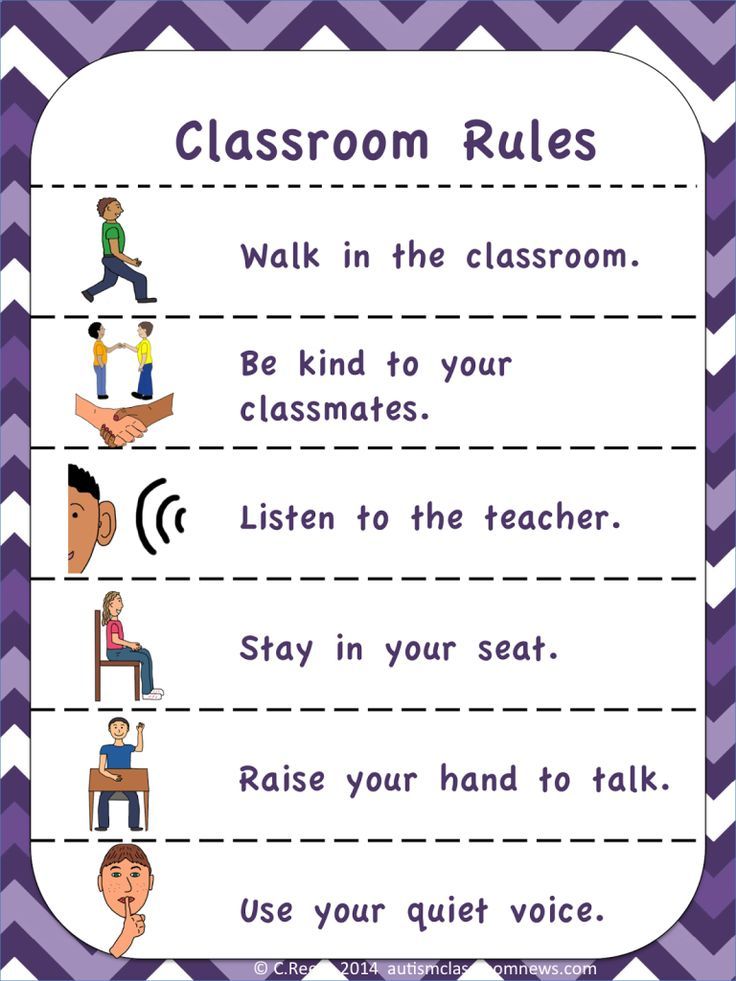 This is the only way to maintain or improve relations with the child. At the same time, it is not necessary to forbid the child to communicate with his own parent, unless this poses a danger to life and health, physical and emotional. The new spouse of the mother (or the new wife of the father) can play the role of a mentor, an older friend, but in no case try to become a second dad or a second mother.
This is the only way to maintain or improve relations with the child. At the same time, it is not necessary to forbid the child to communicate with his own parent, unless this poses a danger to life and health, physical and emotional. The new spouse of the mother (or the new wife of the father) can play the role of a mentor, an older friend, but in no case try to become a second dad or a second mother.
In the future, the child will choose with whom it is more comfortable for him to communicate and whom he considers his real parents. Often it is the adoptive parent who becomes more dear and beloved, if only because the child sees an example of a worthy attitude towards himself and his own mother or father. nine0003
Rules of society
A mother who has realized and worked through her attitude towards her former partner, the father of one of the children, perceives her children in the same way in any situation - both when she is proud of them and when she is angry because of something. If children have the same father, but different mothers, it is important to pay attention to other nuances. A stepmother should not take on the duties of a mother. How the stepmother will build communication with the children also depends on how the relationship between stepbrothers and sisters will develop. nine0003
If children have the same father, but different mothers, it is important to pay attention to other nuances. A stepmother should not take on the duties of a mother. How the stepmother will build communication with the children also depends on how the relationship between stepbrothers and sisters will develop. nine0003
“First of all, you need to create an atmosphere of trust, to show the children that you treat them with respect. You should not allow disrespectful attitude towards you from the side of children - both you and your partner should follow this.
Often the parent feels guilt and embarrassment towards the non-native child and because of this allows him too much in the family sooner or later, native to you or not. And the youngest must remain the youngest. It can be difficult for children to accept new roles, especially if they used to be the only ones or had a different position in the family hierarchy - for example, the child was the eldest of two, and is now the "middle" of three.Give the children time to adjust to the new situation. It is important that they are free to share their feelings about this with you.” nine0003
Often a parent feels guilt and embarrassment towards a non-native child and because of this cannot build boundaries, allows the child too much. The formation of a healthy personality largely depends on the ability to see these boundaries, on the understanding of certain rules of behavior. Therefore, remind yourself that this child is the same as yours, dear. And treat him the same way.
Struggle for territory
Another topical issue is conflicts between parents. A man may feel guilty before his own child (“I deprived him / her of a full-fledged family”) and, as a kind of compensation, begins to pay much more attention to the child than to his wife. nine0003
He does this unconsciously, trying to prove to himself that he is a "good parent". Here again the question of roles arises: a woman occupies a higher position in the family hierarchy than a child.
She builds the rules of the house, and in these rules the child must learn to live. And his father should help him with this.
“The need to give a child too much attention, to pamper him can lead to negative consequences: in this way, the natural parent shows that the stepmother / stepfather does not count. Children begin to manipulate adults early, especially if the parents are in conflict: the child may focus on the fact that his mother did something better or his father was kinder and bought more toys. Parents should agree on a balanced upbringing system: if dad plays a good cop, and mom plays a bad one, there can be no question of any proper upbringing. nine0003
About the expert
Anna Avdeeva – psychologist, specialist in parent-child relations. Her website.
Text: Yana Verzun Photo source: Getty Images
New on the site
“I'm sorry that I confessed to my husband of infidelity. How to restore good relations?
Incubi, sacrifices and orgies: what is sexual magic - dive into the story
How to recognize a womanizer: 10 signs - check your partner0003
“For 15 years I have not found a girlfriend on dating sites”
Joint birth: harm or benefit for relationships?
Where does the fear of death come from and how to overcome it?
Christianity, Islam, Judaism, Buddhism: how religion helps to survive the crisis - 4 opinions about faith, man and meaning
7 tips for parents on how to raise an unspoiled and grateful child Advice
Every parent strives to raise a smart, capable, kind, sympathetic child, but not everyone succeeds.
Children grow up spoiled, capricious, arrogant. In a word, spoiled. In this article, we will advise what to do so that this does not happen to your child. nine0003
As responsible parents, we want to raise our child to be as prepared as possible for an independent life in this unpredictable world. But let's be honest: what many people mean by "preparing for independent living" is just a good formal education. From an early age, the child is taught mathematics, writing, science and other sciences, and a little later they are sent to a strong school. Of course, all this is useful and will definitely come in handy in adulthood, but is it enough to raise an unspoiled child? nine0003
Let's count how many times have you seen smart and educated children who are obsessed with themselves and who are not even interested in the opinions, desires and interests of those closest to them? How many times have you come across intelligent children who do not put their parents in anything (disrespect, rudeness, arrogance, arrogance, lies)? And how many times have you met excellent students who, already in adulthood, are completely dependent on their parents? Such children are often called spoiled.
And the truth is that there is no such gene that could "spoil" the child. The only ones who can do this are his parents. nine0003
It is worth understanding one thing: a sympathetic, caring, disinterested child does not happen by chance, it is only the merit of his parents. Because it is they who have a key influence on the baby. Your child is a reflection of yourself. Therefore, the best advice for raising an ideal child is to be a good example for him. But if everything was so simple, then there would be no problems with education.
Here are some tips that can help you raise a generous, caring and responsible person. Before you read them, ask yourself what character traits do you want to see in your child in a few years? Let your answers become your cherished goal that you will pursue while raising your child. nine0003
1. Love, but set boundaries
Raising an unspoiled child is always a balancing act between two extremes: love and limits, warmth and strictness, generosity and rejection.

Every morning ask yourself: "If I could teach my son (daughter) just one thing today, what would it be?" Check if the answer is consistent with your goals that you are pursuing in education. In the evening, ask a security question: “What did I teach my child today?”. nine0003
2. Stop patronizing!
Good parenting is not about making sure your child is happy. It's more about teaching him how to deal with setbacks, rejections, mistakes, and adversity.
Constantly shielding the child from anything that might cause frustration will not help him master this critical skill. This will not teach him to overcome difficulties, relying only on his own strength.
Stop patronizing your child. Give him the opportunity to learn to manage his life on his own, while mistakes are not so painful. nine0003
3. Learn to empathize
Unspoiled children are taught not to always put themselves first. Instead, they know how to take into account the opinions, desires and interests of the people around them (especially those close to them).

Empathy is an ability that enables a small person to think and look at what is happening from the position of another. This is the foundation for the development of such character traits as respect, restraint, kindness, selflessness.
4. Develop financial responsibility
One of our main tasks as parents is to teach our children to live self-reliantly. This means that we must teach him to manage his finances on his own, and not wait for endless handouts from his parents.
If you feel like a "golden ATM" for your children, then the smartest thing to do is close your wallet.
An uncorrupted child is one who understands the words "no" and "not now."
5. Say no without guilt
Constant satisfaction of a child's desires will not help teach him that life will not always go according to his plan. Add the word "no" to your vocabulary and don't feel guilty about having to say it. Believe me, in the long run, your children will still be grateful to you for this.
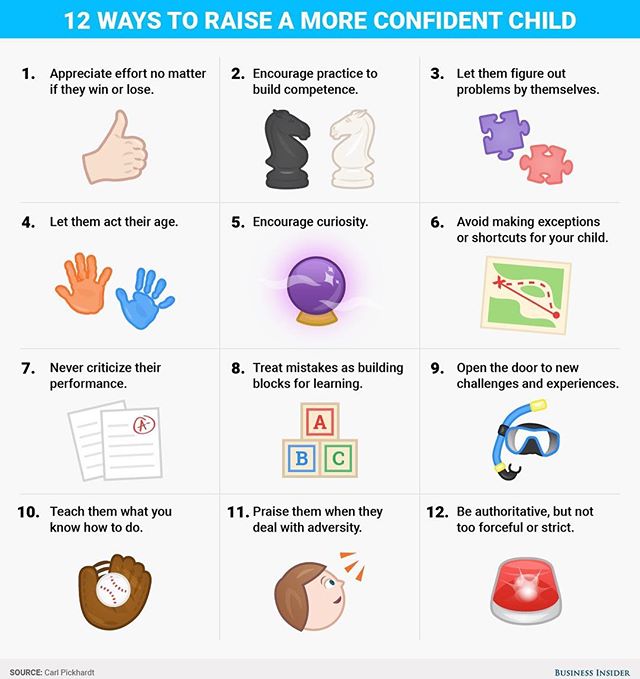
6. Learn to give, not just receive
Give your children the opportunity to understand that they can change lives simply by giving or doing something for other people. Indeed, many of them do not even realize that this is possible. nine0003
Somewhere I came across an article that said that generous children are not only less selfish and more appreciative of others, but also happier in life.
One of the best ways to keep a child from selfishness is to periodically involve him in volunteer work that does not involve material rewards.
7. Replace "I" with "we"
Children are self-centered. They think that the world revolves only around them. They are more concerned with themselves and their own needs, and they do not pay attention to the opinions and desires of others. And in order not to let them get hung up only on themselves, you need to take them away from the endless “I-I-I” and teach them to think in the “we-we-we” format. nine0003
Here are some simple expressions you can use with your child:
- Let's ask Masha what she would like to do?
- Remember, we always share!
- Ask your friend what he would like to play?
- Now it's your brother's turn.
